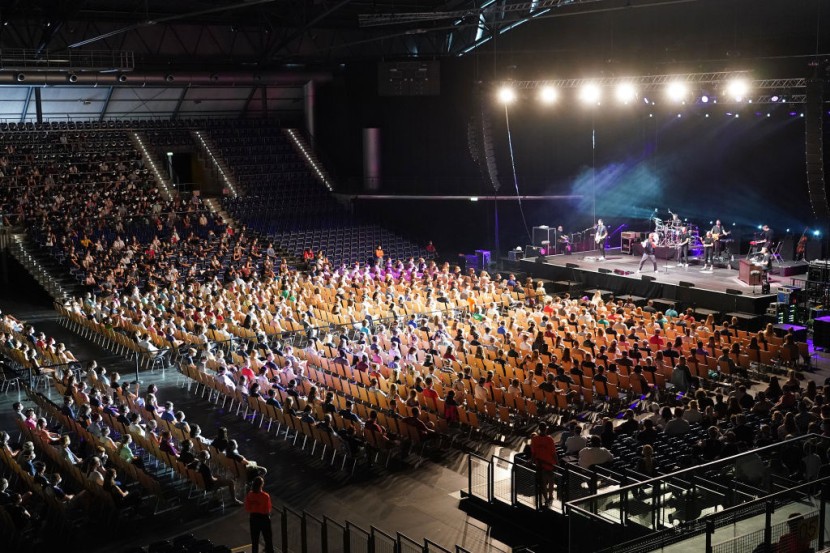
Germany has taken a different approach in studying how COVID-19 spreads in large stadium-sized events.
In an experiment held in the country, thousands of people volunteered to attend a pop-concert in order to help understand the way COVID-19 is transmitted in these events and also how to help prevent it.
On Saturday, the "concert experiment" was held at Arena Leipzig with around 1,500 people in attendance. The researchers placed the participants in concert simulations, each with different protocols on health and safety, seat assignments, and admission plans.
Before the participants were allowed to be part of the experiment, a negative COVID-19 test for 48 hours was required and everyone was asked to wear masks in the entirety of the experiment, NPR reported.
Due to restrictions banning large gatherings, the concert simulation was the first time that people in Germany were able to gather inside an arena for a concert since the pandemic broke out.
Despite being praised for its early response against the COVID-19 outbreak, Germany has seen a surge in the number of cases recently. For the first time since April, the number of daily cases in the country went over 2,000 on Saturday.
Using nearly $1.2 million, Martin Luther University Halle-Wittenberg organized the study. According to the university's medical faculty dean, Michael Gekle, researchers involved in the study collected data on the behavior of the crowd and how it affected the transmission of COVID-19 in social and cultural events.
Gekle also added that he is hoping that the gathered information will be able to contribute to the decision of the government in assessing whether an event is safe to hold or not.
The experiment
People who attended the event were divided into three different concert scenarios. The first scenario depicted an event "pre-pandemic" where social distancing was not practiced at all. The second one allowed more space between the participants, including multiple entrances and exit points which reduces crowding. Lastly, the third scene simulated a concert that strictly followed social distancing guidelines and people were strictly directed to stand at least 5 feet apart, which is the distance recommended by the country's health ministry.
According to Deutsche Well, each participant to the event was given an electronic contact tracing device which recorded the movements that they made while in the stadium. Moreover, hand sanitizer infused with fluorescent marking spray was also used to track the surfaces which people frequently touched. While a smoke machine was used to visualize the virus-spreading aerosols.
Amid the experiment, Tim Bendzko, a German pop singer entertained the crowd. The singer, however, stated that he was skeptical at first that the concert would be realistic but ultimately stated that the crowd was very engaged.
According to the Chicago Tribune, only one-third of the original sample size (4,200) attended the event. However, researchers clarified that the data collected was enough to draw conclusions. They also added that results should be expected in a span of four to six weeks.
Despite the researchers saying that they were satisfied with the amount of data collected, many still criticized the experiments saying that it does not depict the situation in a real concern where people sing and drink alcohol. But, Gekle stated that they were constrained with the imposed restrictions in indoor drinking by health authorities amid the experiment.
Related article
: COVID-19 Vaccine: China Announced Using Experimental Vaccine in Public Since July
© 2026 HNGN, All rights reserved. Do not reproduce without permission.








